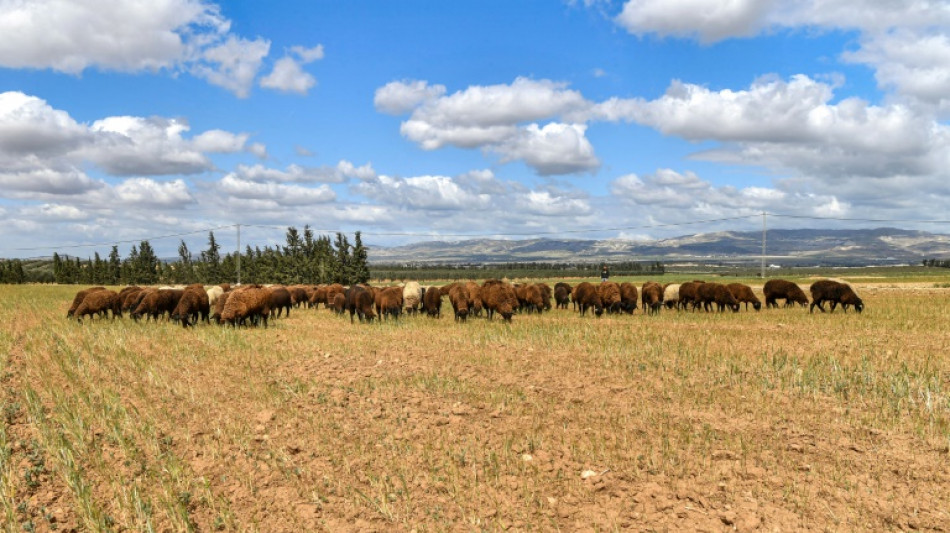
-
 Microsoft raises Xbox prices globally, following Sony
Microsoft raises Xbox prices globally, following Sony
-
US stocks rise on Meta, Microsoft ahead of key labor data
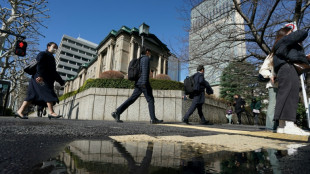
-
 Toulouse injuries mount as Ramos doubtful for Champions Cup semi
Toulouse injuries mount as Ramos doubtful for Champions Cup semi
-
Guardiola glad of Rodri return but uncertain if he'll play in FA Cup final

-
 Ruud sails past Medvedev into Madrid Open semis
Ruud sails past Medvedev into Madrid Open semis
-
'Not a commodity': UN staff rally over deep cuts

-
 Flintoff proud as Afghan refugee protege plays for Lancashire second team
Flintoff proud as Afghan refugee protege plays for Lancashire second team
-
Peruvian cardinal accused of abuse challenges late pope's sanction

-
 Trans women barred from women's football by English, Scottish FAs
Trans women barred from women's football by English, Scottish FAs
-
Oil prices drop, stocks diverge amid economic growth fears
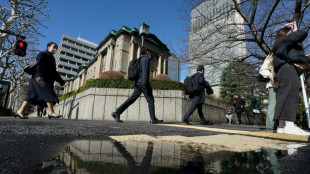
-
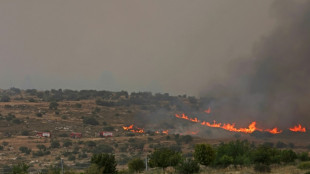 Israel brings fire near Jerusalem 'under control', reopens roads
Israel brings fire near Jerusalem 'under control', reopens roads
-
Lopetegui appointed coach of Qatar

-
 UK counter-terrorism unit probes rappers Kneecap but music stars back band
UK counter-terrorism unit probes rappers Kneecap but music stars back band
-
Yamal heroics preserve Barca Champions League final dream

-
 2026 T20 World Cup 'biggest women's cricket event in England' - ECB
2026 T20 World Cup 'biggest women's cricket event in England' - ECB
-
Bangladesh begins three days of mass political rallies

-
 Children learn emergency drills as Kashmir tensions rise
Children learn emergency drills as Kashmir tensions rise
-
Millions of children to suffer from Trump aid cuts
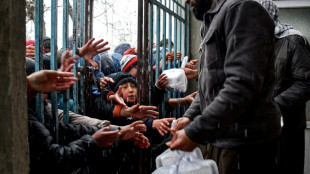
-
 Veteran Wallaby Beale set for long-awaited injury return
Veteran Wallaby Beale set for long-awaited injury return
-
Syria's Druze take up arms to defend their town against Islamists

-
 Tesla sales plunge further in France, down 59% in April
Tesla sales plunge further in France, down 59% in April
-
US calls on India and Pakistan to 'de-escalate'

-
 Israel reopens key roads as firefighters battle blaze
Israel reopens key roads as firefighters battle blaze
-
Europe far-right surge masks divisions

-
 James will mull NBA future after Lakers playoff exit
James will mull NBA future after Lakers playoff exit
-
Ukraine's chief rabbi sings plea to Trump to side with Kyiv

-
 Australian mushroom meal victim 'hunched' in pain, court hears
Australian mushroom meal victim 'hunched' in pain, court hears
-
Lakers dumped out of playoffs by Wolves, Rockets rout Warriors

-
 Booming tourism and climate change threaten Albania's coast
Booming tourism and climate change threaten Albania's coast
-
US reaching out to China for tariff talks: Beijing state media

-
 Tariffs prompt Bank of Japan to lower growth forecasts
Tariffs prompt Bank of Japan to lower growth forecasts
-
Kiss faces little time to set Wallabies on path to home World Cup glory

-
 Serbian students, unions join forces for anti-corruption protest
Serbian students, unions join forces for anti-corruption protest
-
Slow and easily beaten -- Messi's Miami project risks global embarrassment

-
 Fan in hospital after falling to field at Pirates game
Fan in hospital after falling to field at Pirates game
-
Nuclear power sparks Australian election battle

-
 Tokyo stocks rise as BoJ holds rates steady
Tokyo stocks rise as BoJ holds rates steady
-
Bank of Japan holds rates, lowers growth forecasts

-
 'Sleeping giants' Bordeaux-Begles awaken before Champions Cup semis
'Sleeping giants' Bordeaux-Begles awaken before Champions Cup semis
-
Napoli eye Scudetto as Inter hope for post-Barca bounce-back

-
 Germany's 'absolutely insane' second tier rivalling Europe's best
Germany's 'absolutely insane' second tier rivalling Europe's best
-
PSG minds on Arsenal return as French clubs scrap for Champions League places

-
 UK WWII veteran remembers joy of war's end, 80 years on
UK WWII veteran remembers joy of war's end, 80 years on
-
Myanmar junta lets post-quake truce expire

-
 Rockets romp past Warriors to extend NBA playoff series
Rockets romp past Warriors to extend NBA playoff series
-
Messi, Inter Miami CONCACAF Cup dream over as Vancouver advance

-
 UN body warns over Trump's deep-sea mining order
UN body warns over Trump's deep-sea mining order
-
UK local elections test big two parties

-
 US judge says Apple defied order in App Store case
US judge says Apple defied order in App Store case
-
Seventeen years later, Brood XIV cicadas emerge in US


'Flash drought' frequency increasing due to climate change: study
Dry-spells known as flash droughts, with a surprisingly rapid onset and often devastating impact, are becoming more frequent as human activity warms the planet, according to a study published Thursday.
Though droughts are generally thought of as long-term phenomena, some can occur quite suddenly, in a matter of weeks, when the conditions are right.
Global warming is a recipe for increasing those special conditions around the world, creating in certain areas a decrease in precipitation and increased evaporation, which dries out the soil more quickly.
For the study, published in the journal Science, researchers analyzed a combination of satellite data and ground moisture readings from a period of over 60 years (1951-2014).
"Both flash and slow droughts are increasing" as global temperatures rise, lead author Xing Yuan told AFP.
But flash droughts are increasing more quickly "especially over Europe, North and East Asia, Sahel and west coast of South America," he said.
The researcher, based out of China's Nanjing University of Information Science and Technology (NUIST), warned that the rapid onset of flash droughts gives humans little time to adapt, such as by diverting water resources or preparing for wildfires.
"The vegetation do not have enough time to adapt either," he added.
Yuan's team used climate modeling to forecast how flash droughts will change under several possible greenhouse gas emission scenarios.
Even if emissions are moderate, flash droughts will continue to become more frequent across practically all regions. Under higher emissions scenarios, the trend would be more drastic.
Yuan also said the data showed a general increase in drought onset speeds, with his team finding a "robust transition at global scale" of slow to flash droughts.
"We believe the reduction in emission can slow down this transition," he told AFP.
The concept of flash drought emerged in the early 21st century, but has received more attention since the summer 2012 drought in the United States, which set in particularly quickly and caused more than $30 billion in economic losses.
A commentary piece by two professors in the Netherlands, also published in Science, said the study's warning "should be taken seriously" as the threat "may be even greater than they suggest."
David Walker of Wageningen University and Anne Van Loon of Vrije Universiteit (VU) Amsterdam, both of whom were not involved in Yuan's work, underlined that most of the "hot spot regions" determined by the study were particularly low-income areas.
"These regions generally have more vulnerable populations and lower financial resources for coping mechanisms," they said.
The pair also added that current methods for detecting droughts, often month-by-month data analyses, must be updated to "operate on shorter time scales," due to the increase in flash droughts which "may build and trigger outcomes in just weeks."
D.Cunningha--AMWN